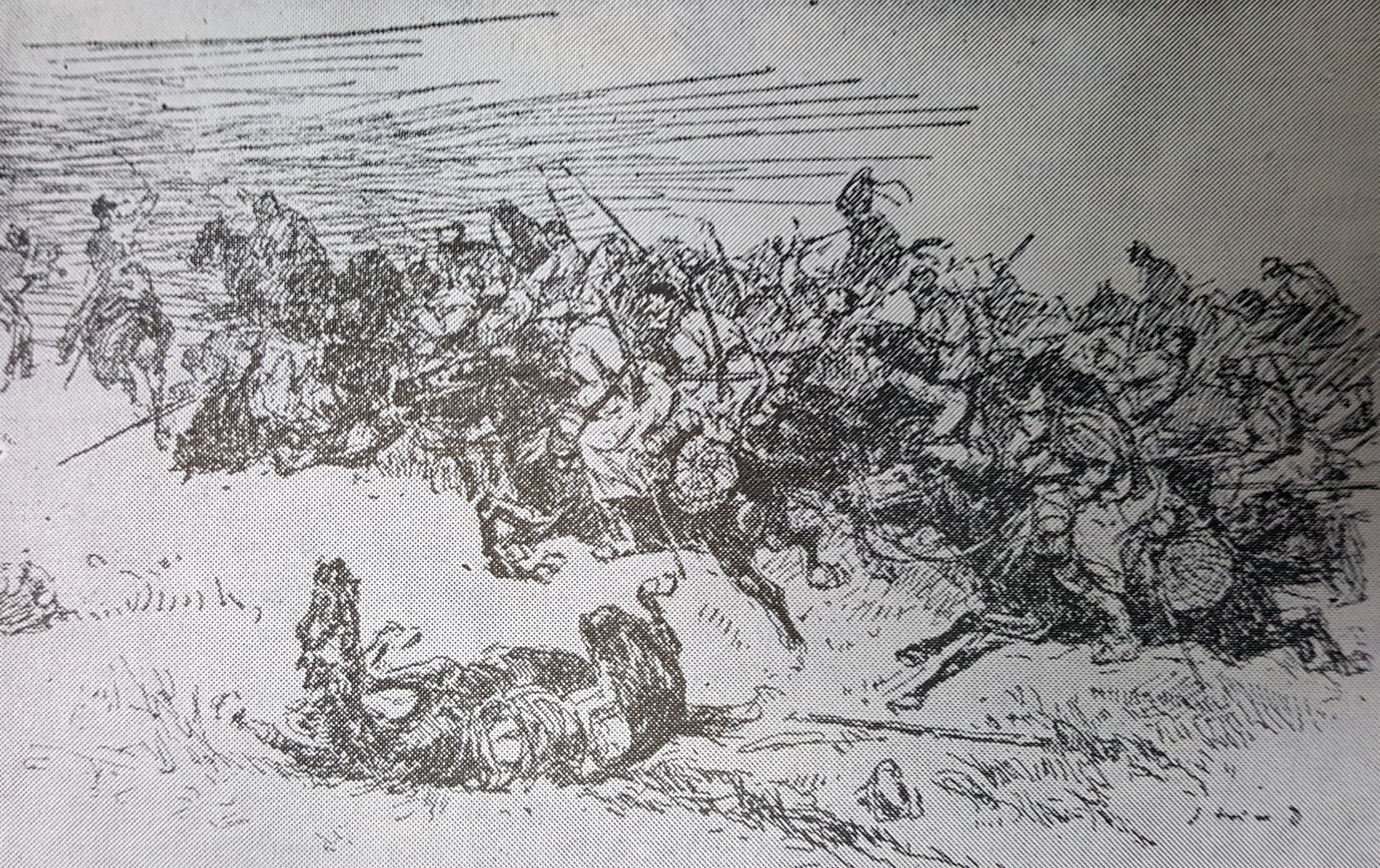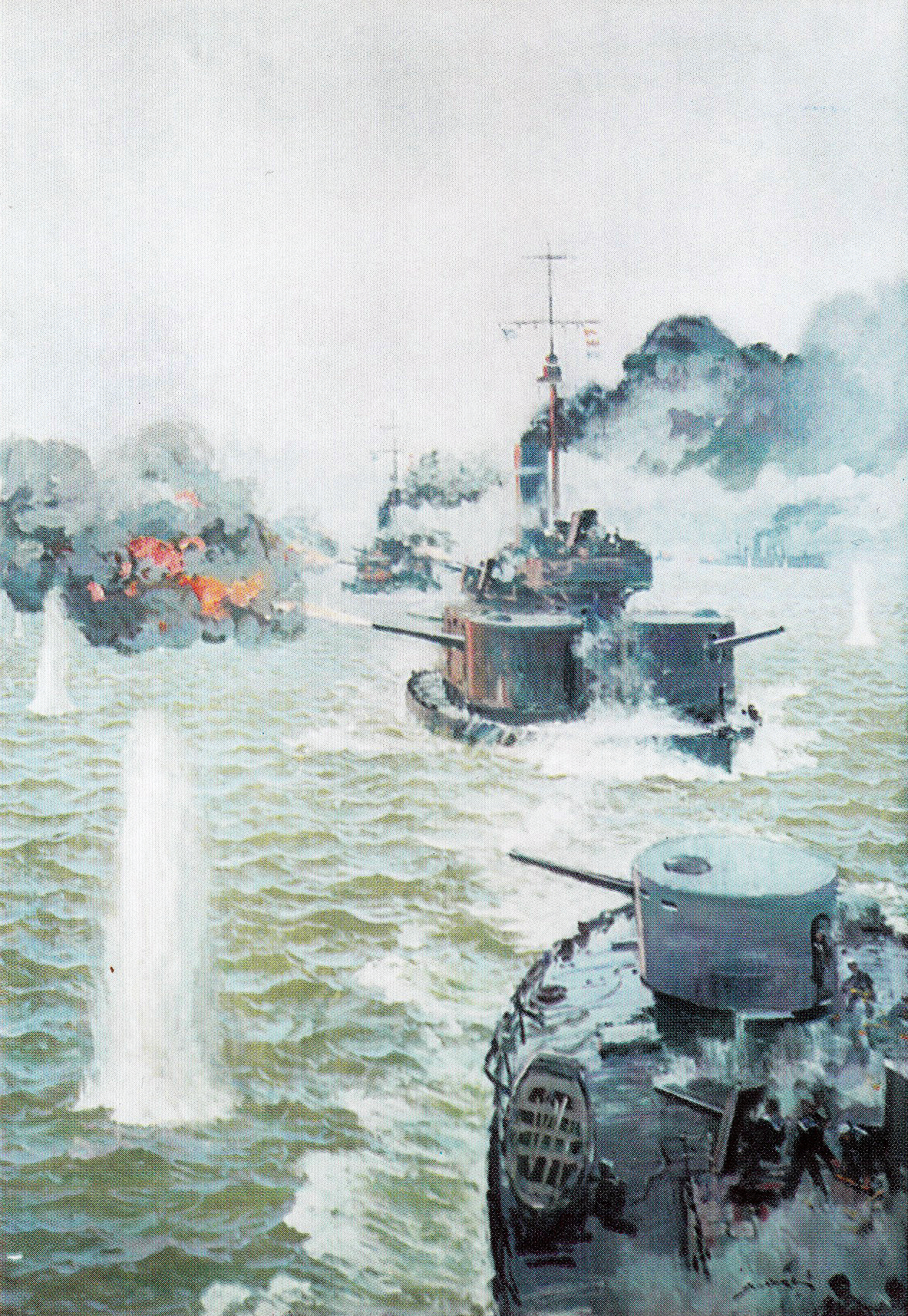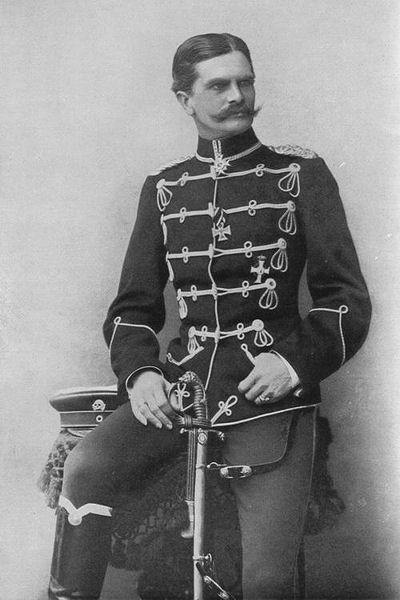|
Battle Of Bazargic
The Battle of Bazargic, also known as the Battle of Dobrich or the Dobrich epopee (), (), took place between 5 and 7 September 1916 between a joint Bulgarian–German-Ottoman force, consisting mainly of the Bulgarian Third Army, and a Romanian– Russian force, including a Division of Serbian Volunteers serving under the Russian 47th Corps. The battle was part of the Romanian campaign towards the end of 1916. It ended with a Central Powers victory. Background Although bound by the pre-war Triple Alliance to the Central Powers, Romania instead joined the Triple Entente in August 1916, following the signing of the Treaty of Bucharest (1916). German Commander Field Marshal August von Mackensen was put in charge of the Romanian campaign in the Dobruja front. In September the 3rd Bulgarian Army was reinforced with two Ottoman divisions and part of a German division. The Central Powers' plan was to attack the Romanian forces in Transylvania Transylvania ( or ; ; ... [...More Info...] [...Related Items...] OR: [Wikipedia] [Google] [Baidu] |
Dobruja Campaign
The Dobruja Campaign was a major operation during the Romanian Campaign of World War I. It took place between 2 September and 25 October 1916 between a joint Kingdom of Bulgaria, Bulgarian–German Empire, German–Ottoman Empire, Ottoman force, consisting mainly of the Bulgarian Third Army, and a Kingdom of Romania, Romanian–Russian Empire, Russian force. The battle was part of the Romanian campaign towards the end of 1916. It ended with a Central Powers victory. Background By August 1916 the Central Powers found themselves in an increasingly difficult military situation – in the West the German Empire, German Battle of Verdun, offensive at Verdun had turned into a costly battle of attrition, in the East the Brusilov Offensive was crippling the Austro-Hungarian Army, and in the South the Italian Army was increasing the pressure on the Austro-Hungarians, while General Maurice Sarrail's Allied expeditionary force in northern Greece seemed poised for a major Monastir Offensive, ... [...More Info...] [...Related Items...] OR: [Wikipedia] [Google] [Baidu] |
Triple Alliance (1882)
The Triple Alliance was a defensive military alliance between Germany, Austria-Hungary, and Italy. It was formed on 20 May 1882 and renewed periodically until it expired in 1915 during World War I. Germany and Austria-Hungary had been closely allied since 1879. Italy was looking for support against France shortly after it lost North African ambitions to the French. Each member promised mutual support in the event of an attack by any other great power. The treaty provided that Germany and Austria-Hungary were to assist Italy if it was attacked by France without provocation. In turn, Italy would assist Germany if attacked by France without provocation. In the event of a war between Austria-Hungary and Russia, Italy promised to remain neutral. After the Austro-Hungarian empire and Germany declared war without first being attacked by other nations, Italy did not take part in World War I on the side of the Central Powers and later joined on the side of the Allied Powers. When th ... [...More Info...] [...Related Items...] OR: [Wikipedia] [Google] [Baidu] |
1916 - Sarja A Cavaleriei Romane In Luptele De La Bazargic Desen De D Stoica
Events Below, the events of the First World War have the "WWI" prefix. January * January 1 – The British Empire, British Royal Army Medical Corps carries out the first successful blood transfusion, using blood that has been stored and cooled. * January 9 – WWI: Gallipoli Campaign – The last British troops are evacuated from Gallipoli, as the Ottoman Empire prevails over a joint British and French operation to capture Constantinople. * January 10 – WWI: Erzurum Offensive – Russia defeats the Ottoman Empire. * January 12 – The Gilbert and Ellice Islands Colony, part of the British Empire, is established in modern-day Tuvalu and Kiribati. * January 13 – WWI: Battle of Wadi (1916), Battle of Wadi – Ottoman Empire forces defeat the British, during the Mesopotamian campaign in modern-day Iraq. * January 29 – WWI: Paris is bombed by German Empire, German zeppelins. * January 31 – WWI: An attack is planned on Verdun, France. Febru ... [...More Info...] [...Related Items...] OR: [Wikipedia] [Google] [Baidu] |
Battle Of Turtucaia
The Battle of Turtucaia (; , ''Bitka pri Tutrakan''), also known as Tutrakan Epopee (, ''Tutrakanska epopeya'') in Bulgaria, was the opening battle of the first Central Powers offensive during the Romanian Campaign (World War I), Romanian Campaign of World War I. The battle lasted for five days and ended with the capture of the fortress of Turtucaia (now Tutrakan) and the surrender of its Romanian defenders. Background By August 1916 the Central Powers found themselves in an increasingly difficult military situation – in the West the German Empire, German Battle of Verdun, offensive at Verdun had turned into a costly battle of attrition, in the East the Brusilov Offensive was crippling the Austro-Hungarian Army, and in the South the Italian Army was increasing the pressure on the Austro-Hungarians, while General Maurice Sarrail's Allied expeditionary force in northern Greece seemed poised for a major Monastir Offensive, offensive against the Bulgarian Army. The Romanian gover ... [...More Info...] [...Related Items...] OR: [Wikipedia] [Google] [Baidu] |
Treaty Of Bucharest (1913)
The Treaty of Bucharest (; ; ; ) was concluded on 10 August 1913, by the delegates of Bulgaria, Romania, Serbia, Montenegro and Greece. The Treaty was concluded in the aftermath of the Second Balkan War and amended the previous Treaty of London, which ended the First Balkan War. About one month later, the Bulgarians signed a separate border treaty (the Treaty of Constantinople) with the Ottomans, who had regained some territory west of the Enos-Midia Line during the second war. Background Bulgaria, dissatisfied with its gains in the First Balkan War, and especially with Greek and Serbian gains in Macedonia, launched an attack on its former allies in June 1913. The attacks were driven back, and the Greek and Serbian armies invaded Bulgarian-held territory in return. At the same time, the Ottomans advanced into Eastern Thrace and retook Adrianople, while Romania used the opportunity to invade Bulgaria from the north and advance against little opposition to within a short dist ... [...More Info...] [...Related Items...] OR: [Wikipedia] [Google] [Baidu] |
Second Balkan War
The Second Balkan War was a conflict that broke out when Kingdom of Bulgaria, Bulgaria, dissatisfied with its share of the spoils of the First Balkan War, attacked its former allies, Kingdom of Serbia, Serbia and Kingdom of Greece, Greece, on 16 (Old Style, O.S.) / 29 (N.S.) June 1913. Serbian and Greek armies repulsed the Bulgarian offensive and counterattacked, entering Bulgaria. With Bulgaria also having previously engaged in territorial disputes with Kingdom of Romania, Romania and the bulk of Bulgarian forces engaged in the south, the prospect of an easy victory incited Romanian intervention against Bulgaria. The Ottoman Empire also took advantage of the situation to regain some lost territories from the previous war. When Romanian troops approached the capital Sofia, Bulgaria asked for an armistice, resulting in the Treaty of Bucharest (1913), Treaty of Bucharest, in which Bulgaria had to cede portions of its First Balkan War gains to Serbia, Greece and Romania. In the Trea ... [...More Info...] [...Related Items...] OR: [Wikipedia] [Google] [Baidu] |
Black Sea
The Black Sea is a marginal sea, marginal Mediterranean sea (oceanography), mediterranean sea lying between Europe and Asia, east of the Balkans, south of the East European Plain, west of the Caucasus, and north of Anatolia. It is bounded by Bulgaria, Georgia (country), Georgia, Romania, Russia, Turkey, and Ukraine. The Black Sea is Inflow (hydrology), supplied by major rivers, principally the Danube, Dnieper and Dniester. Consequently, while six countries have a coastline on the sea, its drainage basin includes parts of 24 countries in Europe. The Black Sea, not including the Sea of Azov, covers , has a maximum depth of , and a volume of . Most of its coasts ascend rapidly. These rises are the Pontic Mountains to the south, bar the southwest-facing peninsulas, the Caucasus Mountains to the east, and the Crimean Mountains to the mid-north. In the west, the coast is generally small floodplains below foothills such as the Strandzha; Cape Emine, a dwindling of the east end ... [...More Info...] [...Related Items...] OR: [Wikipedia] [Google] [Baidu] |
Transylvania
Transylvania ( or ; ; or ; Transylvanian Saxon dialect, Transylvanian Saxon: ''Siweberjen'') is a List of historical regions of Central Europe, historical and cultural region in Central Europe, encompassing central Romania. To the east and south its natural border are the Carpathian Mountains and to the west the Apuseni Mountains. Broader definitions of Transylvania also include the western and northwestern Romanian regions of Crișana and Maramureș, and occasionally Banat. Historical Transylvania also includes small parts of neighbouring Western Moldavia and even a small part of south-western neighbouring Bukovina to its north east (represented by Suceava County). Transylvania is known for the scenery of its Carpathian landscape and its rich history, coupled with its multi-cultural character. It also contains Romania's second-largest city, Cluj-Napoca, and other very well preserved medieval iconic cities and towns such as Brașov, Sibiu, Târgu Mureș, Bistrița, Alba Iuli ... [...More Info...] [...Related Items...] OR: [Wikipedia] [Google] [Baidu] |
German Empire
The German Empire (),; ; World Book, Inc. ''The World Book dictionary, Volume 1''. World Book, Inc., 2003. p. 572. States that Deutsches Reich translates as "German Realm" and was a former official name of Germany. also referred to as Imperial Germany, the Second Reich or simply Germany, was the period of the German Reich; . from the unification of Germany in 1871 until the German revolution of 1918–1919, November Revolution in 1918, when the German Reich changed its form of government from a monarchy to a Weimar Republic, republic. The German Empire consisted of States of the German Empire, 25 states, each with its own nobility: four constituent Monarchy, kingdoms, six Grand duchy, grand duchies, five Duchy, duchies (six before 1876), seven Principality, principalities, three Free imperial city, free Hanseatic League, Hanseatic City-state, cities, and Alsace–Lorraine, one imperial territory. While Prussia was one of four kingdoms in the realm, it contained about two-thirds ... [...More Info...] [...Related Items...] OR: [Wikipedia] [Google] [Baidu] |
Ottoman Empire
The Ottoman Empire (), also called the Turkish Empire, was an empire, imperial realm that controlled much of Southeast Europe, West Asia, and North Africa from the 14th to early 20th centuries; it also controlled parts of southeastern Central Europe, between the early 16th and early 18th centuries. The empire emerged from a Anatolian beyliks, ''beylik'', or principality, founded in northwestern Anatolia in by the Turkoman (ethnonym), Turkoman tribal leader Osman I. His successors Ottoman wars in Europe, conquered much of Anatolia and expanded into the Balkans by the mid-14th century, transforming their petty kingdom into a transcontinental empire. The Ottomans ended the Byzantine Empire with the Fall of Constantinople, conquest of Constantinople in 1453 by Mehmed II. With its capital at History of Istanbul#Ottoman Empire, Constantinople (modern-day Istanbul) and control over a significant portion of the Mediterranean Basin, the Ottoman Empire was at the centre of interacti ... [...More Info...] [...Related Items...] OR: [Wikipedia] [Google] [Baidu] |
Dobruja
Dobruja or Dobrudja (; or ''Dobrudža''; , or ; ; Dobrujan Tatar: ''Tomrîğa''; Ukrainian language, Ukrainian and ) is a Geography, geographical and historical region in Southeastern Europe that has been divided since the 19th century between the territories of Bulgaria and Romania. It is situated between the lower Danube, Danube River and the Black Sea, and includes the Danube Delta, the Romanian coast, and the northernmost part of the Bulgarian Black Sea Coast, Bulgarian coast. The territory of Dobruja is made up of Northern Dobruja, which is a part of Romania, and Southern Dobruja, which is a part of Bulgaria. The territory of the Romanian region Dobrogea is organised as the counties of Constanța County, Constanța and Tulcea County, Tulcea, with a combined area of and, , a population of slightly less than 850,000. Its main cities are Constanța, Tulcea, Medgidia, and Mangalia. Dobrogea is represented by dolphins in the coat of arms of Romania. The Bulgarian region Do ... [...More Info...] [...Related Items...] OR: [Wikipedia] [Google] [Baidu] |
August Von Mackensen
Anton Ludwig Friedrich August Mackensen (ennobled as von Mackensen in 1899; 6 December 1849 – 8 November 1945), was a German field marshal. He commanded Army Group Mackensen during World War I (1914–1918) and became one of the German Empire's most prominent and competent military leaders. After the armistice of 11 November 1918, the victorious Allies interned Mackensen in Serbia for a year. In 1920, he retired from the army. In 1933 Hermann Göring made him a Prussian state councillor. During the Nazi era (1933–1945), Mackensen remained a committed monarchist and sometimes appeared at official functions in his World War I uniform. Senior Nazi Party members suspected him of disloyalty, but nothing was proven against him. Early life and career Mackensen was born in Haus Leipnitz, near the village of Dahlenberg (today part of Trossin) in the Prussian Province of Saxony, to Ludwig and Marie Louise Mackensen. His father, an administrator of agricultural enterprises, sen ... [...More Info...] [...Related Items...] OR: [Wikipedia] [Google] [Baidu] |









